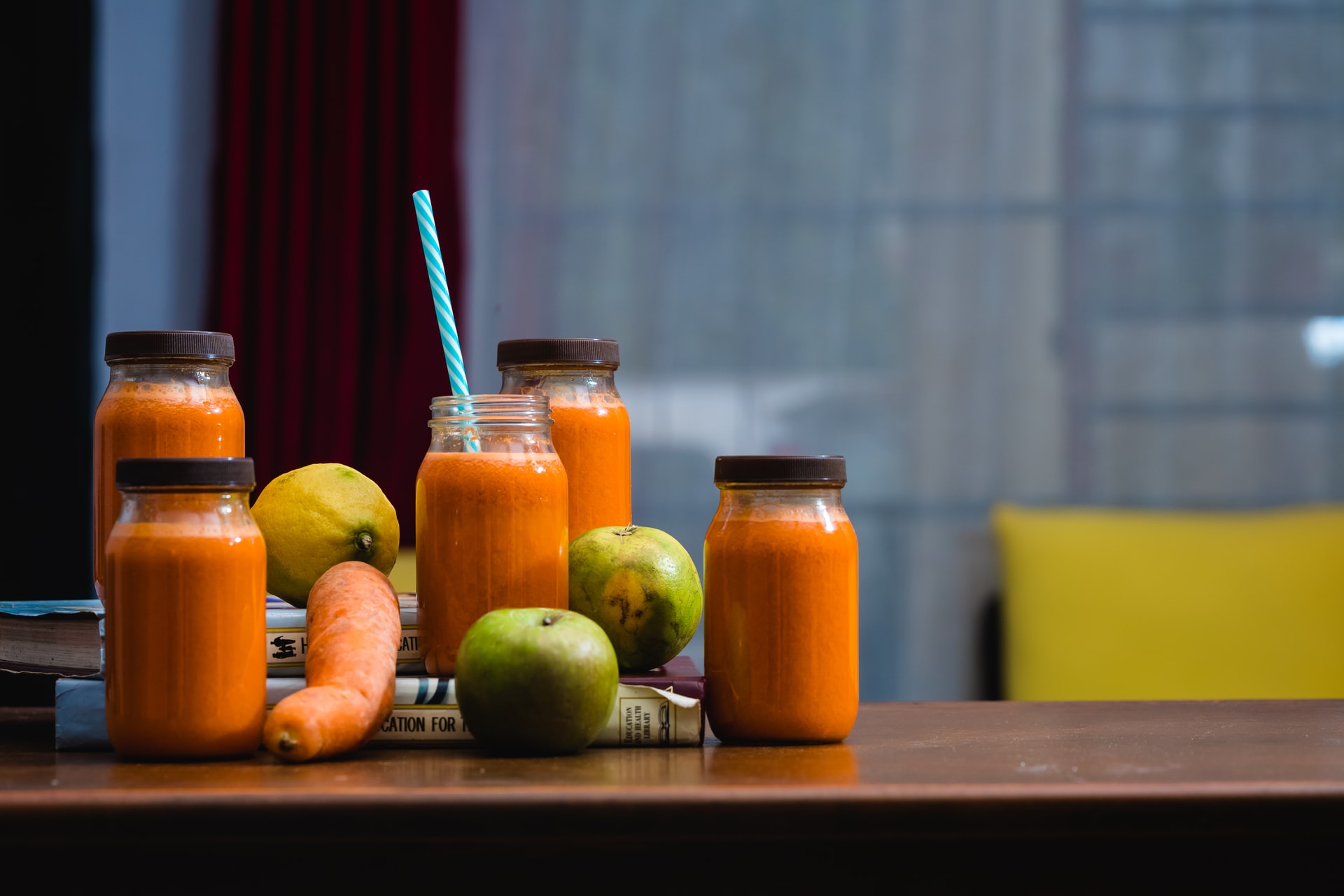
Body + Mind is reader-supported. We may earn an affiliate commission when you buy through some of the links on our site.
Everyone knows that fruits and vegetables are great for your health, so the idea of juicing might seem appealing. It’s been a popular weight-loss strategy for decades. People may switch a meal with juice or do a total juice cleanse for several days. You can make juicing fit your lifestyle, but is it right for you?
Read these eight side effects of juicing to determine if it’s the right choice for your health needs. Once you learn the pros and cons, you’ll know if you should start juicing to feel better or lose weight without depending on expensive diet products and supplements:
Even if you only replace one meal each day with your latest juice recipe, you’ll cut calories and begin a calorie deficit. Instead of eating cheeseburgers, pizzas or sandwiches, you’ll replace those processed foods and calories with fresh, water-based juices.
Juicing causes immediate weight loss because it creates a calorie deficit that causes the body to burn extra fat for energy. As these fat-storing cells empty, you’ll also lose water weight and notice that you don’t feel bloated anymore.
People often believe they won’t have to worry about their fiber intake if they juice fruits and vegetables because they’re naturally high in fiber. This would be true if you make smoothies, but juicing removes the solid parts of the fruit that contain the fiber.
Most fruits and vegetables contain fiber in their peels, which get left behind in juicing machines. Without fiber in your diet, you’ll experience more frequent bathroom breaks and uncomfortable bowel movements.
If your standard diet centered around processed, starchy foods, you likely weren’t getting the nutrients your body needed. Boxed meals and pastries don’t have the antioxidants, vitamins and minerals found in vegetables and fruits. By leaving these foods behind, you’ll immediately improve your nutrition by relying on juice instead.
While you can find vegetables with protein, they won’t be as protein-dense as a serving of meat, fish or beans. Relying solely on juice with no add-ins will make you feel lethargic. Your body needs protein to fuel your metabolism and give you lasting energy as it breaks down the protein.
An easy way to prevent feeling sleepy or exhausted is to add protein powder to your juice. Although people sometimes wonder if it’s healthy, it can be a great supplement when your diet lacks natural protein. Follow the serving size directions and it will boost your metabolism during your juice cleanse.
As you drink more all-natural juice, you’ll prevent yourself from developing diseases. It’s one of the unknown side effects of juicing that can make the most significant impact on your future. When you juice something like blueberries, they’ll boost your microbiome and digestive tract so you don’t develop gastrointestinal issues typically associated with a bad diet.
You can also fight generational diseases by juicing. Yellow and orange vegetables lower your breast cancer risk when you eat more than two and a half servings per day. Juicing is an easy way to increase your vegetable intake to protect your health without requiring more cooking.
After you start juicing, you might feel less inclined to switch back to a solid food diet if you want to continue losing weight. The instant gratification of losing water weight and seeing the scale go down every morning can cause people to develop eating disorders that keep them from the food their body needs.
Even though you’ll get some nutrients from juicing, whole foods can promote your weight loss in healthier ways. Forget about complicated recipes where you measure macro and micronutrients. Instead, you can make something as simple as oatmeal to speed up your metabolism without starving your body of the food it needs to function correctly.
After starting your juicing journey, you’ll likely lose a few pounds due to the new calorie deficit. After a few days or weeks, your body will think you’re starving to death because it’s not getting the calories it needs, so you might hit a plateau.
Instead of burning fat for energy, your body will slow down your metabolism and bodily functions to conserve energy. If you were genuinely starving, it would help you live longer. When you switch back to solid foods, your body might store the calories to help you avoid starving again.
Plateauing and even gaining weight after juicing is common for people who don’t ensure they get the calories their bodies need for daily functions.
Most of the side effects of juicing occur gradually over time. Tracking your experience is the best way to guarantee you’re getting all the pros and none of the cons of juicing. Record your meals, energy levels and daily thoughts while you juice and reflect on them after a few days or a week to figure out if it’s right for you.
You can also talk with your doctor if you have concerns about juicing interfering with your medications or existing health conditions.